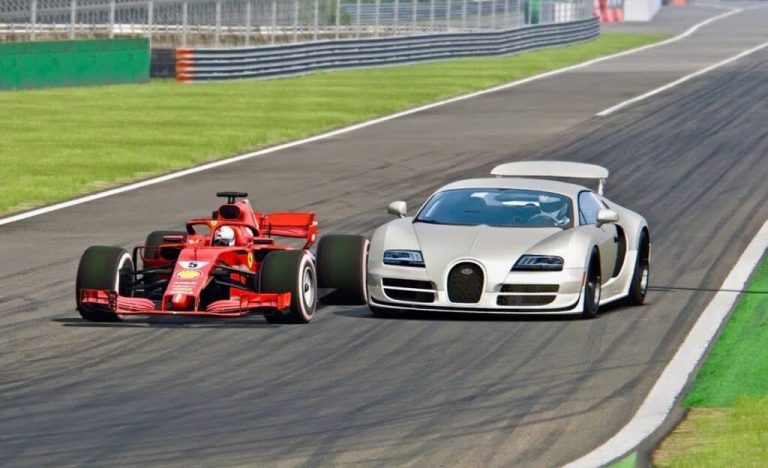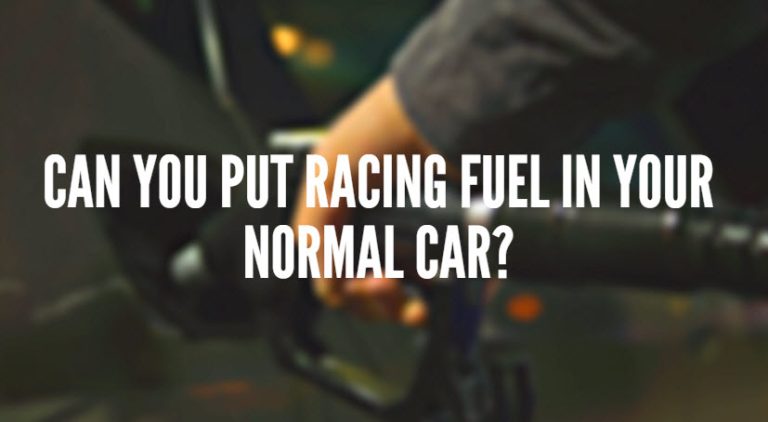How Long Can You Leave A Car Without Starting It?
How long can you leave a car without starting it? You can leave your car for up to 2 weeks without starting it. The exact limit will depend on how much gas is in the tank and what kind of car you have. You should disconnect the battery if you want to stop using it for a long time, so that you don’t run out of gas.
There are many, many people who have had similar issues but failed to find the answers, so now I know it’s okay for me and my friends to take our leisurely weekend drives outside of town despite some prodding from friends who think we should get rid
I found a lot of information about what happens when you let your car sit too long and I want to share it with you. I found out that if a car sits for too long, the battery will die. There are things that can happen and ways to prevent them from happening.
Many people in the world buy a car when they are learning how to drive. They don’t know how long can they not start the car and leave it. When they pass their driving test, they have issues with starting the car. It is important for everyone who has a car to know how long can you leave your battery unused.
People who go on vacations leave their cars in their garages. But cars don’t get used when the owner or driver is sick and can’t use the car. One should Make sure to use your car at least twice a week.
Role of Battery in a Car
When a car is driving, it uses electricity from the battery. When a car is not moving, the battery runs out of electricity.
How long car battery lasts without charging varies depending on the type of vehicle. Sitting with the engine off does drain a charge, but different tasks such as open a window before turning it off can help compensate for that.
Modern vehicles are fitted with battery-draining technology that limits the charge in the batteries, even while the vehicle is not in use. Certain types of features, like alarm signals, chips for lights with sirens and preferences for seat positions need to stay powered because they are stored on your chip as well. Smaller control boards that power these different items
How does a car Perform that hasn’t been used in a while ?
Most of the time, it matters what your car has been doing for a long time. If it is kept in the garage, then the paint will not get scratched or stay in the rain. When a car stays turned off for a long time, something bad will happen to it.
1. Tires and rubber materials
When it comes to the rubber materials in your engine, hoses, and belts, they will wear down over an extended period of time. I noticed this when my tires started developing cracks after 6-7 years. Any type of rubber element under the hood will eventually succumb to wearing down over a long duration.
2. Rust
This is why you should pay attention to the duration of which a car has been left idle. A neglected vehicle will have more time for corrosion and rust to develop then if it had been started up periodically.
3. Electronic Control Unit
One important consideration for a car that has not been started in a while is the ECU (Car Computer). Over time, pins on the board may oxidize, especially those of airbags.
Your car engine, electrical systems, and other components in the car will degrade over time without periodic maintenance.
4. Bad smell in the cabin
Over time, a car’s smell can take on the burnt oil and fuel residue that occurs as the engine heats up. A musty smell from moisture present in closed spaces can lead to eventual mold growth.
Cars that have been in storage for a long time are not comfortable to use because they will get dirty. You can make them clean again by taking the car to a car cleaner with special solutions and wait a few days.
Another good way of storing a car is for the owner to keep its windows open while in the garage. There will be less drastic fluctuations in temperature inside.
5. Brake discs and brake pads will wear
The brakes will wear out if you don’t use the car, potentially causing injury in an emergency stop. The best solution is to check and replace the brake pads and discs every two or three years.
6. Calipers
I checked the brakes of a car that has not been started for a long time. When I changed the brake pads, I was surprised to see that the calipers were rusty. This is normal because any car with steel calipers will rust. But there are two problems inside: The pistons that push the brake pads back after you have
The second problem with letting a car sit for too long is the gas in the tank creates methane, which can build up and seep inside to sabotage your engine. Moreover if you leave it parked without pressure from a piston or two that push pads, then they will lock themselves.
7. Air conditioning
If we have not stoked the car for a long time, the air conditioner does not work. The parts are still in good condition but the has all chances to evaporate when it is untouched. Some rubber seals also need regular lubrication and this is done by letting go of air from inside (out).
8. Water pump
As for water pumps, they can easily break if we don’t start the car for a long time. Particularly with older cars with cast-iron blocks. Deposits and residues, even rust, mix with coolant in the cooling system.
If you don’t drive your car for a long time, the deposits that are on it will harden. These deposits can get stuck in other things like the water pump. That’s why you need to start and drive your car every so often to keep the deposits from building up.
9. Relays
Everything in life will rot if it is left untouched. Wine is the only thing that does not. But some parts of a car need to be started up, or they will rot too. In addition to the relays, there are many other parts of a car that work with electricity.
If car owners do not start their vehicle for a long period of time, such as several weeks or months, the contacts in gas-powered cars will become oxidized and fail to work.
An electrical operation is always heated. This is a good thing because they are made to withstand high temperatures. If an imperfect contact happens, you can let it stay for a little while, and then the heat will go through the contact.
10. Injectors
Cars can last for a few days before the engine’s cooling systems fail. The fuel injection system has been known to break down because of frequent refueling with poor quality fuels.
In the same way that other cars build deposits, a car we forget to start every so often may experience the same problem.
If, in winter, the engine freezes at an extremely low temperature and even cracks from lack of pressurized gas to clean the injectors.
Also Read: Does Rev Matching burn your clutch?
Why Your Car Should Be Started Regularly?
Cars Need Power
Modern cars have many different parts. The parts work together to make the car go fast and be comfortable. They all need power though, and over time they will get old and need changed.
However, components can wear out even without being used. There are several components in your car that, even if you haven’t used them, can show signs of wear and tear if left for a long time. One obvious example of this is the brakes, as they may corrode when left in wet weather or on a wet surface.
Corrosion
Although this corrosion can wear off if you use your car again, it can be a problem if you don’t know it has less stopping power. If there are other pieces in the car that need oil, like rubber or other materials, they might not work well. Those pieces need to be lubricated by the gas or engine oil. But.
The majority of car owners who have left their vehicle unused, say they do not know how long you can leave a car without starting it. It is the depleted battery of the car that causes the most problems.
Power Hungry Features
The battery in your car drains constantly, and so powering even the most seemingly low-level systems will eventually shorten its lifespan.
The car makes electricity with a device called an alternator. The alternator changes the energy in the engine to electric power. It can recharge the battery. But if your car has an electric clock that is always on (or even worse if you left the lights on) while you are not using it, that costs money as well.
Starting The Car
To start the car, there needs to be energy in the battery. Occasionally, the engine won’t start if the battery isn’t charged enough. This means that while you are driving around, your battery will not have electricity and it will stay like this until you turn off your car. To avoid this problem from happening while you are driving
How Often Should You Start Your Car?
Your car might not work if you stop using it for too long. The longer you wait, the more likely it is that your car will not be able to start or something else will happen to the vehicle.
Two weeks is the time for most vacations. But some people don’t have a car. And if someone has a newer car, they might not need to start it for two weeks and some old cars might need to be started more often than that.
Other Factors
One of the concerns current drivers may have is how long you can leave a car without starting it. This will depend largely on the age and make and model of car, as well as your location.
The reasons listed above are reasons to start your car on a regular basis. You don’t have to worry about high repair bills if you pay attention and start the car, or worse yet, letting a battery die.
Best Car Maintenance Tips
Is your car going to be left idle for longer than a few days? There are ways to help avoid potential damages and ensure the car will start when you get back. You could give spare keys and the vehicle insurance information to someone trustworthy or happily drive it yourself every few days
In order to charge a car battery, you should start the engine at least once a month, and then drive for around 15 minutes (at least).
Handbrake
If you are not using your handbrake to park your car, then try to use the gear so it won’t roll. You can’t use the handbrake if there is a hill. If possible, park it on a level place away from hills and other things.
Take a step further and disconnect the battery. This will help you if there are other problems with the car. Cover the terminals of the battery with petroleum jelly to keep them from rusting.
Fuel & Oil
Before leaving the car, you should put clean oil in the engine, take a short drive to circulate the oil through all parts of the engine and prevent any unwanted contaminants from building.
If your car is going to be sitting for a long time, fill the tank with fuel so that it doesn’t get corrosion from water. Make sure the tires have adequate air. It would also be a good idea to check the tire pressure. That way, it won’t start to get flat or have any defects.
FAQ’s
Is it harmful for a car to sit too long?
When you stop driving, your battery dies. It can either be recharged or replaced with a new one. When you are not driving, lots of things in the car need power to work. This includes sensing when there is a collision and sounding an alarm to keep people safe.
One of the most common questions that people ask is begs when they need an answer about how long to leave a car turned off and with no electrical power.
How to Spot A Dead Battery?
All cars have a battery. If your battery is dead or dying, then these things won’t work: the lights in your car may not work either, and neither will your radio or headlights.
You can tell if the car battery is dead when you try to start it and nothing happens. If it’s not a case of an old, flat battery, there may be other issues at hand.
How to preserve car battery when it is not in use?
Ensuring your car battery is fitted properly and the cables are in order will help to avoid a short circuit. You should conduct regular health checks on your car battery so that it works at its best and lasts as long as possible. Keeping the battery in proper working condition with a tester will ensure that it is producing enough power when you need it most
It is tempting for drivers to believe that you can just leave your car parked for an extended period of time without starting it. However, this may be the worst thing you could do to your car’s battery if left unattended.
What You Need To Do To Prepare Your Car For Storage?
We created this article to inform you about How Long Can You Leave A Car Without Starting It. We compiled some useful information about car performance and what to do before, during, and after a long parking period.
Battery Should be charged
To keep a battery from dying, it’s important to hook your car up to the correct charger. A maintained charger keeps the battery charged and ready-to-go. A jump starter is a completely different type of device that can be used to bring a dead battery back usefully.
If you don’t plan on driving your vehicle in transit, a battery maintainer or trickle charger is the best option to keep your battery alive.
Car batteries can lose charge. If left sitting idle, a car battery will gradually loose its charge. If an engine doesn’t start or doesn’t crank when needed, then this could result in an emergency situation.
Add new fluids
Leaving your car parked for long periods of time requires a little more maintenance because fluids will get low. Although there are exceptions, the best thing to do is top off the fluids as you’re about to park it and let it run for at least 2 minutes before shutting it down on an engine that still has oil pressure yet is cold. Any type
Add fuel stabilizer
Chemical fuel stabilizers, like STA-BIL products, will keep your gas fresh for up to two years. You can buy them at Amazon or from a store near you.
The amount of stabilizer you use should be determined by reading the manual. Pour it into your fuel tank and then fill up with gasoline. Make sure to follow all instructions on the can of stabilizer for best results.
Park Wisely
If you don’t plan on using your car for an extended period of time such as during the winter, it is best to leave it in a safe location, like your garage. You can also purchase something to cover the exterior that will protect it from weather and staining or keep the engine warm. Avoid parking on grassy or wet surfaces where cracks
Protect the tires
Putting your car on blocks will help prevent flat tires and brittle tires. After the vehicle has been jack-stacked, it can be supported with jack stands and then blockades can be placed underneath. It is important to reduce the weight on your tires in order to prevent deformation and damage.
Wash your car
Before parking your car give it a good wash. By cleaning the vehicle, you can prevent rust and paint damage from contamination, such as road salt and dust. You might also consider applying a vehicle undercoating or any other rust-prevention product if you live in an area with a tendency to rust.
Mouse-proof your car
For rodent control, you should also add some repellent products inside your vehicle and under its hood. In addition to mousetraps and electronic sound deterrents, a scent deterrent is another option we recommend.
Don’t engage the parking brake
The parking brake is a good thing to use when your car is parked. But it’s not a good idea to put on the parking brake when you are leaving your car for an extended period of time. The most frequent instance in which we often see the parking brake fuse with the rotor or drum is due to rust. That leaves you locked out of your car if it’s parked where it could roll back or forward, though using a block or wheel chock behind your tires will provide that extra protection.
How To Save Your Battery?
Car batteries can die. It is important to keep them safe and clean. You should disconnect the battery, put some gel on it, and keep it in a safe place. Check with your mechanic before you do this because sometimes it can be an issue for some cars.
Be sure your car battery is in order before leaving it idle and ensure that the cables are tight. A loose cable can lead to an unintended short circuit, damaging the battery and potentially harming its integrity.
However, there are a few precautions anyone with this issue should take. The best way to maintain the battery life is by utilizing a trickle charger that keeps the battery charged even when you’re not driving or parked in one place.
Is it necessary to start your parked car frequently?
Regularly starting an engine does not protect a car battery while it’s parked, and the whole vehicle can take on wear and tear just as easily.
Starting your car will not fully warm up the car. When you start your car, the exhaust pipe stays filled with condensation and oil. Over time, this can cause serious damage to the engine and lead to catalytic converter failure
It is better to drive your car than to park it. You should go over 50 mph on a few occasions if you only use the vehicle a few times a month.
Conclusion
It can be difficult to start your car after leaving it for a long period of time. To prevent this, try starting it at least once every two weeks or running the engine for about 15 minutes.
The battery of your car can suffer no matter how carefully you drive it or how you take care of it. If we leave a car in the garage for long periods of time without starting it and if we let it sit for long periods of time before it dies, then simply our car’s type and the care we give to it.
Is it possible for a car to go for a long time without starting? We may not have control over choosing a car, but keeping these things in mind can help us take care of the one we do have.
It is important to keep your car in good condition when storing it. This includes making sure there’s no food inside, to avoid attracting mice, and checking the alternator every few weeks.
You should always check your car properly before using it again after leaving it parked for a long period of time. This will reduce the likelihood of problems later on. Make sure that the brake system, wipers, headlights, and taillights, along with other components of the vehicle, are operating properly in order to prevent you and others from being injured.
Car owners and drivers can experience issues if the vehicle isn’t driven on a regular basis. If you want to avoid this, buy from a previous owner without taking care of it – new car prices will be great!







